History repeats itself with Thomas and Froome's leadership contest
'We have them in first and second. It's the best situation we could be in' says Knaven
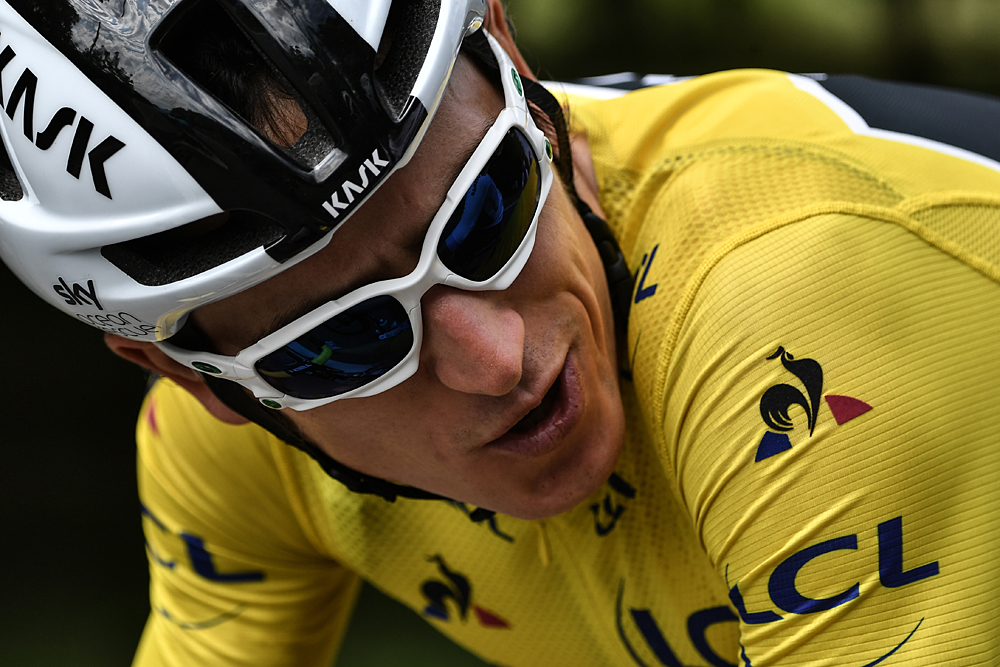
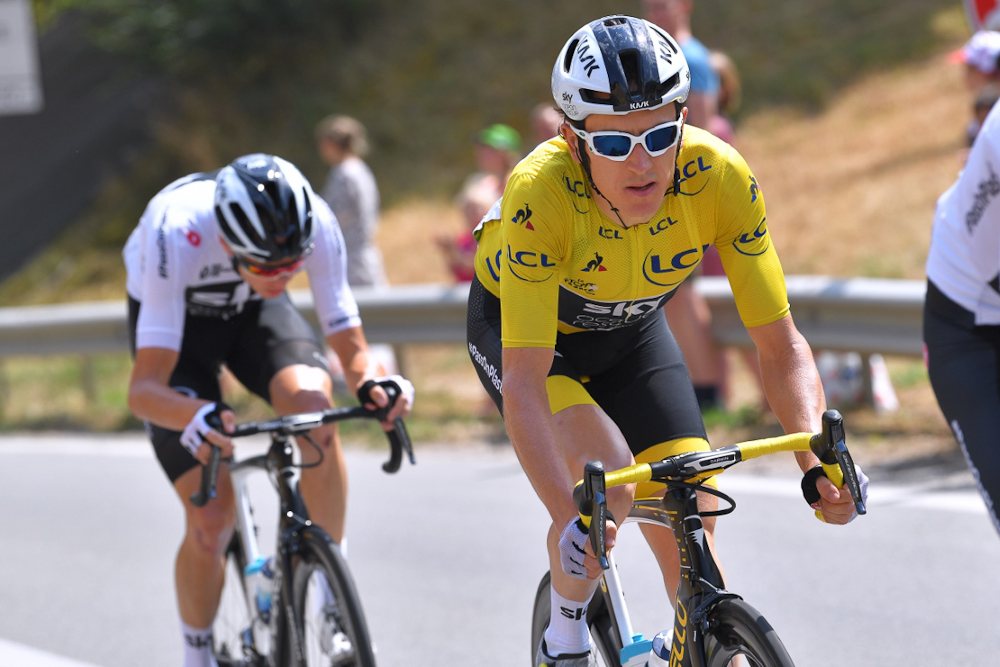
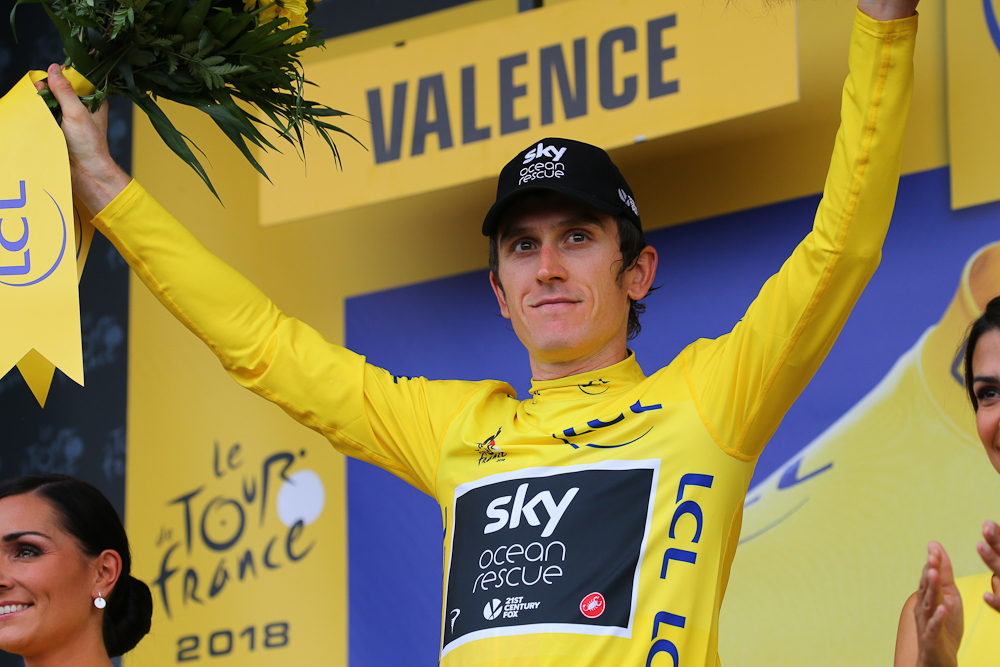
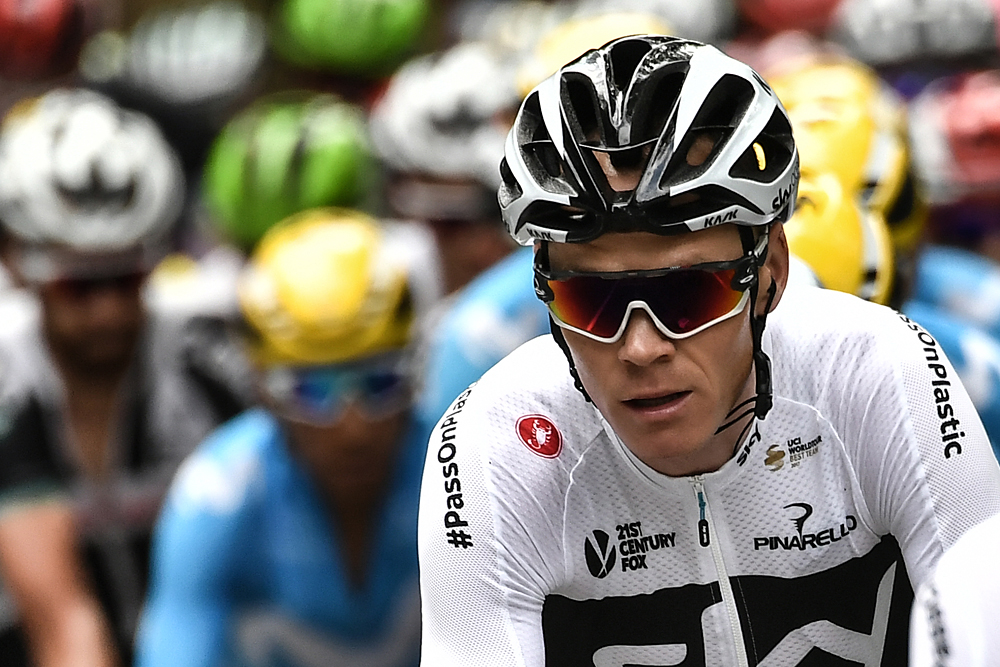
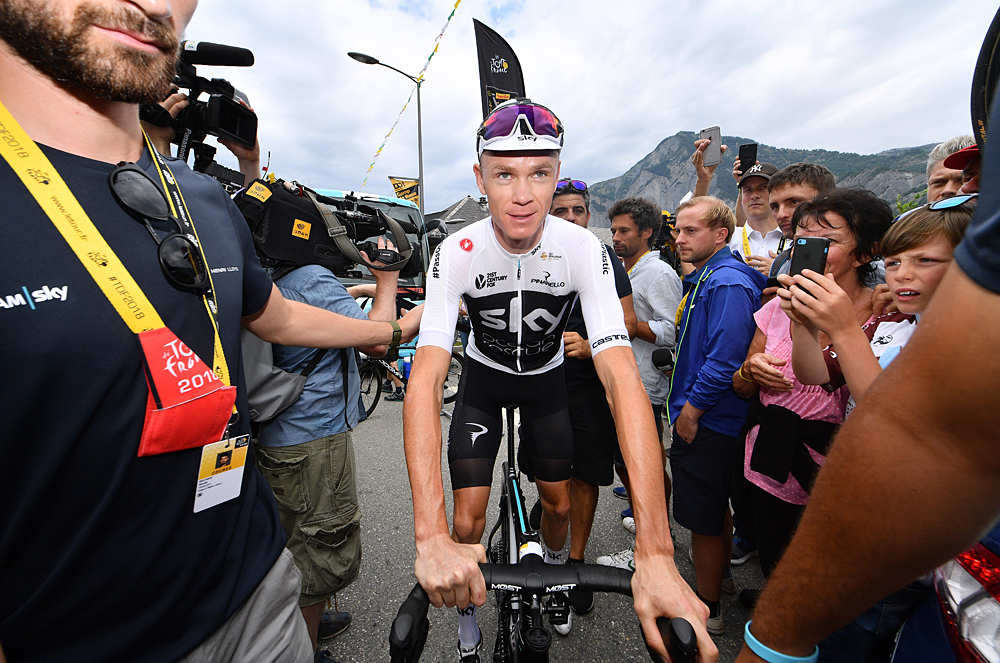
Much like a series of folk tales, the Tour de France tends to throw up recurring tropes. Now 115 years into its existence, The Great Bike Race understandably runs thin on original plot lines. Some stories bear repurposing, however, and few in Tour history have proved as enduring as intra-team rivalry.
Chris Froome insists there is no rivalry within the team at the Tour de France
Thomas: Chris Froome is Team Sky's best chance of winning the Tour de France
Tour de France: Geraint Thomas on cloud nine after historic Alpe d'Huez win
Tour de France: The Alps in review with Thomas, Dumoulin and Roglic - Podcast
Geraint Thomas prepares for next yellow jersey battle at Mende
In an echo of Coppi and Bartali, Anquetil and Rivière, Hinault and LeMond, Indurain and Delgado, Armstrong and Contador – and plenty more besides – come Geraint Thomas and Chris Froome, who occupy first and second overall as the 2018 Tour reaches its third weekend.
To this point, the Team Sky duo – backed by an imposing supporting cast – have been the two strongest riders in the race. Although Tom Dumoulin (Sunweb) and Romain Bardet (AG2R La Mondiale) remain in the hunt, it's difficult to shake off the impression that the Sky pair are in a race of their own. The burning question, then, as it was in the aforementioned cases, is a simple one: who's the boss?
Thomas is 1:39 clear of Froome atop the general classification and has just become only the third rider in Tour history to win back-to-back mountaintop finishes after Fausto Coppi in 1952 and Joop Zoetemelk in 1976. Despite his newfound status, Thomas diplomatically insists that Froome remains the team leader.
"Honestly, I mean it when I say that Froome is our leader. He knows how to race over three weeks and, for me, anything can happen," Thomas said on Alpe d'Huez after the finish of stage 12, mindful of the jour sans that saw him slip from podium contention to 15th overall in the final week of the 2015 Tour.
Froome, for his part, isn't saying very much at all. After placing fourth behind Thomas at Alpe d'Huez, the four-time Tour winner – whose salbutamol case was resolved on the eve of the race – declined to speak to reporters at all.
On Friday afternoon in Valence, he spoke briefly as he warmed down on the rollers, but his analysis of stage 12 was perfunctory. "I've always had a tough time on Alpe d'Huez. I was happy to be up there and not lose time," Froome said.
Get The Leadout Newsletter
The latest race content, interviews, features, reviews and expert buying guides, direct to your inbox!
Froome has been here before, of course. In 2012, he placed second overall behind teammate Bradley Wiggins, and was ordered to wait for his leader on summit finishes at La Toussuire and Peyragudes, despite appearing the stronger climber.
Six years, six Grand Tour wins and one legal battle to avoid a doping ban later, it's more difficult to imagine Froome standing on ceremony, but Team Sky directeur sportif Servais Knaven maintains that there will be no internecine strife.
"I see no problems," said Knaven on Friday. "It worked well from the beginning, and it's worked already for years with 'G' and 'Froomey' together. I see no issues."
Only one of Sky's two leaders can win the Tour, but Knaven gently rejected the idea that team management would necessarily have to decide which of its leaders to support, pointing out that the circumstances of the race might make such discussions moot.
"We'll see how the race develops. If we have to make decisions, then we'll make them when we have to make them," Knaven said. "It's not only Froomey and G who are racing; others will try to attack. It'll be a tough race, and then we'll see how it ends up. We might have to make a decision at a certain moment, and we'll know what decision to make. But that's for then – not for now."
While Sky's decision to back Wiggins over Froome resulted in Tour victory in 2012, it proved rather costlier at the 2011 Vuelta a España. Wiggins went into the race as Sky's nominated leader, while Froome set out still without a contract for the following year, and seemingly surplus to requirements on Dave Brailsford's team.
Froome's dramatic metamorphosis from relative obscurity to Grand Tour contender was so abrupt and surprising that Team Sky's management themselves were caught out. Even after taking the red jersey, the hitherto unremarkable Froome was delegated to ride for Wiggins, and by the time the roles were reversed, Juan José Cobo had taken a decisive lead. Froome reached Madrid in second overall, 13 seconds down, while Wiggins took the third step on the podium.
"In the 2011 Vuelta, we played the 'Wiggo card' 100 per cent and then he had a bad day," Knaven said. "Froome lost the GC by 13 seconds because he waited for Brad, and then everybody said, 'You made a stupid tactical decision.' But we didn't know how good Froome was at that moment. Now we know exactly how good Froome is. We know how good G is, and we have them in first and second, so it’s the best situation we could be in."
In the Alps, Thomas appeared marginally stronger than his leader, but for now, it's as though he is acting as Froome's surrogate. Each day, he wears the yellow jersey, performs the media duties of the race leader and stands atop the podium to receive boos that are directed at Froome and the team at large more than at Thomas himself.
The Pyrenees will surely put a definitive shape on the hierarchy, although the weekend's trek through the Massif Central might already shed some light on the leadership contest that dare not speak its name, starting with Saturday's hilltop finale in Mende.
"Steve Cummings won the last time, in 2015, I believe," Froome said, correctly, on Friday. "It's not easy. On Saturday, we could see some small gaps among the favourites. In my opinion, it won't make differences like yesterday [on Alpe d'Huez], but there could be some small gaps."

Barry Ryan was Head of Features at Cyclingnews. He has covered professional cycling since 2010, reporting from the Tour de France, Giro d’Italia and events from Argentina to Japan. His writing has appeared in The Independent, Procycling and Cycling Plus. He is the author of The Ascent: Sean Kelly, Stephen Roche and the Rise of Irish Cycling’s Golden Generation, published by Gill Books.